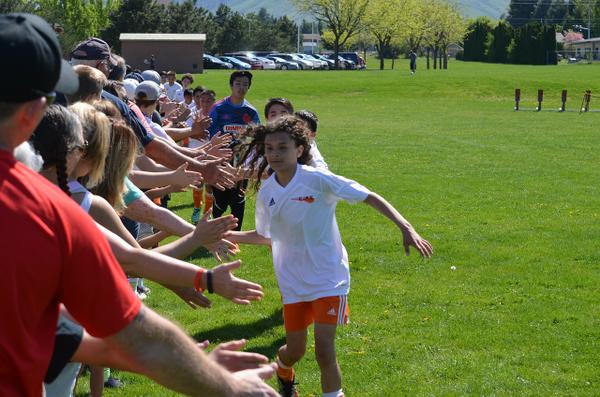May 20, 2016
Achieving Peak Mental Performance – Factor #6: Stop Telling Players ‘It’s just a game’
The Growth Mindset – 7 Key Factors to Achieve Peak Mental Performance
 |
Factor #6 – Why tell your mind ‘This is not important’ – When it really is?!
–
We’ve established the importance that playing present is a key factor, if not THE key factor in achieving peak mental performance. So of course the million dollar question is- HOW DO YOU PLAY PRESENT? In Factor 4 we talked about effective ways to mentally recover from mistakes, so forgetting about the past is part of it. But what I’ve found is the tougher part to master is not the past, but the future. In any situation where you’re doing something that is important to you – it’s natural for the mind to wonder:
‘What happens if I mess this up and I lose future opportunities to do this thing I love?’
One of the most common mistakes I’ve seen coaches and parents do (and I’m sure I’ve done it) is to tell a kid ‘It’s just a game – don’t get stressed or worry about it, it’s just not that important in the big picture.’ That is a lie. If it’s something they’ve been working hard to achieve, then it is important. And realistically – have you ever seen this advice work? Have you ever heard a kid say ‘Oh, OK, thanks coach, you’re right, I don’t care if I win this match, thanks, now I’m relaxed!’ So if it really is important, how do we train our minds to remove the future consequences from our thought process? I’ve asked this question to a lot of really smart people in this field, and here are some actionable steps to help:
- For pre-game nerves: Don’t deny it or try to squelch it! Embrace it – be excited that you are having pre-game excitement. It means that this is important to you. Your body is responding to make you as sharp as possible by waking up all of these feelings and nerves, and you can tap into that strength. – Coach Kevin Kennedy
- Lighten the mood:
- One method is a trigger mechanism – something you have practiced and evaluated what works with each individual – something to get the player to smile. Maybe it’s slapping your leg. Maybe it’s a teammate saying ‘Spongebob is ugly’, etc. – Coach Robert Taylor
- The Knute Rockne-type speeches by a coach often take the fun out of the game and cause the kids to tighten up – just let them go play and have fun – Coach John Doss
- Be relaxed as a coach – Avoid phrases like ‘Try harder’ or ‘Run faster’ – these commands often tighten up a player’s muscles and stiffens them instead of loosening them up – Coach Jason Larocque
- Make sure they know your approval of them is not tied to results but rather effort. ‘In youth sports you cannot play with a piano on your back’ – Kids can’t play with coaches hounding them about mistakes and taking away their confidence. – Coach/Author Michael Langlois
- The game/performance is just your showcase to have fun and shows off the hard work you have been putting in – Band Director Cameron Gish
- Try to get the athlete to see the small picture – don’t get overwhelmed by thinking of the big picture – ask the athlete to think of a small victory they can picture – Coach Stacie Mahoe
- Change the focus off themselves – It’s not about you – Show up to play for your teammates – Coach Ken Stuursma and Coach Creed Larrucea
The goal is to keep ‘Zooming In.‘ The starting point is a huge picture of all past failures and future consequences. Then, using tools such as the ones listed above, we are helping the athlete narrow that window to a smaller and smaller timeframe, eventually getting into a present mindset. I really like Stacie’s advice above to get the athlete to picture a small victory. Picture this conversation with a softball player worried about a big game:
Player: I don’t know if I can do this, what if I go 0 for 4?Coach: Let’s forget about those next 3 at-bats, just focus on this one. Can you picture yourself driving the ball up the middle?Player: I don’t know. I’m so nervous I don’t think I can even swing the bat. What if I strike out looking without even swinging?Coach: How about this: can you picture yourself taking an ugly hack at just one pitch this at bat? I mean a way uglier swing than those funny videos you girls were watching yesterday on your phone. Even if you totally miss the ball, do you think you can just get the bat off your shoulders and take a hack?Player (snickering a little because she’s picturing a really ugly swing): I guess I could do that. Why would I want to take an ugly swing?Coach: Well, good point. I’ve seen your swing and it’s so natural and fun to watch. So let’s get one really good swing in this at bat and go from there.
–
Even if they miss, they have overcome their initial nerves. Then that second swing is going to be easier. Then you can turn the process around and start adding small goals. After they have a good swing at a pitch, ask them if they could picture connecting with a pitch and hitting it hard. And it grows from there…
